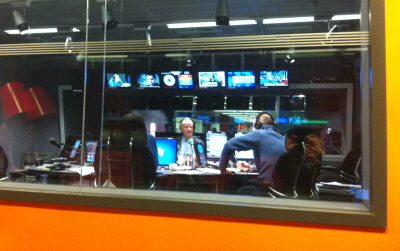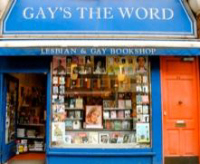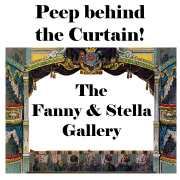In the morning of January 22nd I appeared on the Radio 4 Today programme where I was interviewed by Evan Davies about Fanny and Stella, my latest book.

You can listen to a recording further down the page. Here is a transcript of that interview:
Radio 4 Today Programme broadcast on 22nd January at 6:53 am
Evan Davies interviews Neil McKenna and Matt Cook
Evan Davies: April 1870, two young men, who were in full drag, were arrested outside London Strand Theatre. They were put on trial; they were prosecuted by the attorney general no less, for conspiracy to commit buggery. The public devoured the case and all the revelations emerging from it, revelations of life in a hidden gay sub-culture. The case has been written up in a new book, Fanny & Stella, the young men who shocked Victorian Britain. The author is with us, Neil McKenna. And also on the line Matt Cook who is a senior lecturer in history and gender studies at Birkbeck College, London. Good morning to you both.
Neil McKenna, just give us the story of Fanny & Stella.
Neil McKenna: Well, Fanny and Stella were two young men, Frederick Park and Ernest Boulton, they were young middle class men who liked to wear drag and perform on stage. And when they weren’t performing on stage they walked the streets of London soliciting men for sex and for money.
Evan Davies: Right, we won’t give away whether they are found guilty at the end of your book, that would spoil the tension of the book, but the trial itself was a huge thing, I mean, the equivalent of the tabloid press absolutely loved it.
Neil McKenna: It was the biggest sensation of 1870, it was bigger than the Franco Prussian War. Everyone reported on it, it was in every newspaper in Britain, in Europe, in America, even in Australia. It was absolutely enormous.
Evan Davies: And most people would not have known much about the sort of sub-culture that these men operated in.
Neil McKenna: I think it was so big because it was a completely hidden world, nobody had any inkling that this world went on, that this world existed, that young men dressed as women and haunted the theatres.
Evan Davies: (laughs) But they must have been seen on the streets, wandering around?
Neil McKenna: Well, I think it was seen on the streets, but I think that Victorians were remarkably naive about all this. And I think what happened was that when Fanny and Stella were arrested and taken to court the scales fell from Victorian eyes.
(laughter)
Evan Davies: Matt Cook, I used the word a hidden gay sub-culture, but of course it wouldn’t have been identified as gay sub-culture at that time, would it?
Matt Cook: No that’s right, I mean, we are talking about a point before ideas of gay and homosexual identity were circulating and I think what’s really interesting is, as Neil said, you know Fanny and Stella could in part do this because it wasn’t clear what these things meant. So they could get away with saying well we are just into amateur theatricals.
(laughter)
We are theatrical, not gay!
Evan Davies: But tell us about the evolution of gay sub-culture since the nineteenth century.
Matt Cook: Well, I think what is really interesting about Fanny and Stella’s case is that they, in a way, used theatre and fashion and London’s West End to give a sense of substance to a sense of difference that they felt. I think that is kind of a feature of sub-culture since and so you get men across the twentieth century playing with gender and drag, for example. You got Oscar Wilde using aestheticism to mark out a sense of difference. You got prostitution sub-cultures in the inter-war years with dilly boys and so on. And then kind of may be most famously of all when things get more overtly named you’ve got things like The Gay Liberation Front in the early 1970s and that very overtly politicised sub-culture.
Evan Davies: It’s interesting, isn’t it, but I just wanted to leave a little time to ask the following question. We’re in an era now, 143 years later, no one would be shocked about any of this I suspect now and we’re in the era of much more equality and liberation. Does that mean that there will be no sub-culture, no gay sub-culture? Does that mean the gay sub-culture disappears? Matt Cook first.
Matt Cook: I don’t think so, I think what’s happened more recently is we’ve lost the political fire and so in a way you could say that gay sub-culture has become more mainstreamed. But I also think that some people still feel, very marginalised in various contexts and I think there is still a desire to express a sense of difference. And I think sub-culture and forms of sub-culture can provide a means of doing that.
Evan Davies: Neil McKenna, there would be no modern equivalent to this, would there?
Neil McKenna: There isn’t a modern equivalent. I wouldn’t want to go back; I’m not nostalgic about the past. The past was another country and by in large a horrible place for young gay men so I wouldn’t go back even at the risk of losing a sub-culture.
Evan Davies: Well, it sounds like a fascinating book, Fanny and Stella, the young men that shocked Victorian Britain, by Neil McKenna. Thank you to you, Neil and to Matt Cook too.
Listen to the recording here:






